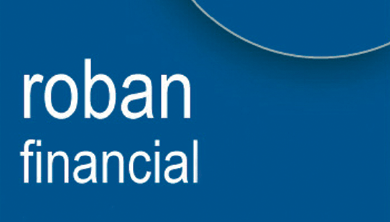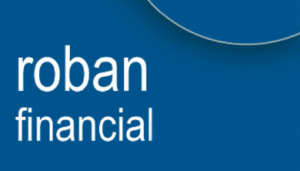With a series of little fees, levies and costly interest rates, banks are trying to squeeze as much out of their customers as they can.
Forget about free banking. If you are an average banking customer, it’s likely that just carrying out your every-day transactions could now cost you as much as €20 a quarter – or €80 a year.
Step over that “every-day” qualification and into the realm of overdrafts and withdrawals outside of Ireland, not to mention Government stamp duties, and you could be looking at the equivalent of another property tax.
Given the hit the taxpayer has already taken to bail out the banking sector, the swathe of charges and fees banks have recently introduced are a bitter pill to swallow.
So what can you do? Apart from trying to emulate a certain former taoiseach by giving up your bank account altogether, the other option is to wise up to how you are being charged and, more importantly, how you might be able to avoid the levies now imposed on your account.
Bank of Ireland
What fees can I expect: If you are a customer of Bank of Ireland, you will have two options when it comes to paying for your banking services from August 19th: 1) “pay as you go”, where you will be charged 28 cents per transaction; or 2) a flat fee of €11.40 a quarter for up to 90 transactions, with a fee of 28 cents charged for each transaction over that limit. And remember, the bank will also charge you a €5 “maintenance fee” each month.
Other fees also apply, as the bank is increasing the cost of paper lodgements and withdrawals, including cheques, as well as so-called “staff-assisted transactions” which you do in the branch to 40 cents.
Watch out for: Banks are keen to consign chequebooks to history, so be prepared to give yours up or pay for the privilege of using it. Bank of Ireland will shortly charge you 20 cents per cheque – or a hefty €5 for a book of 25 cheques – in addition to Government stamp duty and the transaction fees for cheques. This means that if you use a cheque to pay an electrician, for example, it will cost you €1.10 (20 cents BoI fee plus 50 cents Government duty plus 40 cents transaction fee) just to write the cheque.
Can I avoid the new charges? Up to a point. If, for example, you are over 60 with a “golden years” account, or you have a graduate or student account, you won’t pay either the quarterly transaction or maintenance fees.
Alternatively, if you keep a minimum of €3,000 in your personal current account at all times you can avoid the transaction fees, but you will still pay the €5 maintenance fee every three months.
When it comes to statements, cut down on costs by signing up for the bank’s eStatements, which means that details of your accounts will be emailed to you rather than posted.
And use your Visa debit card to pay for goods and services. The transaction charge is just 20 cents and you can also get up to €100 cash-back at the same time and only incur one transaction charge.
Also, so-called “contactless” payments, which involve you paying for goods at a value of up to €15 by swiping your card, will be free until August 18th, 2014. Thereafter, they will incur a fee of 15 cents.
Ulster Bank
What fees can I expect: From July 1st, Ulster Bank is introducing a monthly maintenance fee of €4. While the bank will not charge transaction fees, on a quarterly basis the maintenance fee works out at €12.
Watch out for: Overdrafts. Ulster Bank charges a whopping 15.55 per cent interest on its overdrafts.
Can I avoid charges? If you have a student or graduate account, or again if you are 60 years or over, you will avoid the maintenance fee. Another way of doing so is to either lodge €3,000 to your account each month, or to keep that amount in your account on an on-going basis.
Ulster Bank expects that only half of its current accounts will incur the monthly fee.
AIB
What fees can I expect: Like Bank of Ireland, Allied Irish Banks charges its banking customers in two ways. Firstly, you can expect an account maintenance fee of €4.50 a quarter, or part thereof. In addition, you will pay transaction charges, with a 20 cent fee imposed on the following: ATM withdrawals; standing orders; direct debits; automated lodgements; phone and internet transactions; debit card transactions.
If you go into the bank and do a paper transaction, or ask for a staff member to help you, it will cost you an additional 10 cents, or 30 cents a transaction.
Watch out for: Withdrawing money abroad – particularly in a non-euro zone country. If you are travelling in the US or Canada this summer, don’t make too many stops at the ATM machine. A cash withdrawal with your Laser or Maestro card will incur an additional 3 per cent charge – as well as a 1 per cent commission charge, up to a maximum of €6.35. A slightly lower fee applies to Visa debit transactions.
So, if you take out the equivalent of €500 while overseas, you can expect a charge of about €20.
Can I avoid charges? If you’re a customer of AIB and are looking to avoid maintenance and transaction fees, then you will need to keep at least €2,500 in your account every day.
Danske Bank
What fees can I expect: As this Danish bank tries to get its Irish operation in order, it has imposed significant charges on its Irish customers.
Quarterly fees range from €18.75 for its Easy Plus account, to €31.25 for its Prestige account. However, unlike some of the other banks, it doesn’t charge per transaction, which means that overall fees charged may not be as hefty as they look at first.
Watch out for: If you need a print-out of your statements for any reason, prepare to pay for the privilege. Danske Bank charges €4 per statement.
Can I avoid charges? Unfortunately, charges are unavoidable with Danske Bank. However, it’s worth remembering that leaving significant sums in your current account to avoid charges may be worth more to the bank than it is to you, as you must forego interest on it.
For example, if you leave €3,000 in your current account to avoid transaction fees, you are giving up the €75 you might have earned if you had deposited it a rate of 2.5 per cent – and this may out-weigh the charges you would have otherwise incurred.
Permanent TSB
What fees can I expect: Permanent TSB imposes a quarterly fee of €12 a quarter, or €48 a year. It doesn’t currently charge fees on everyday transactions.
Watch out for: If you overdraw your account, you will incur an interest rate of 14 per cent on the amount overdrawn, as well as a €20 set-up fee.
Not only that, but if you do it and are unauthorised to do so – easy enough to do depending on how far you are from pay day and if an unexpected direct debit kicks in – an additional charge of 12 per cent will apply.
So, if you go overdrawn on your account by €500 for example, you could be looking at a charge of about €150.
Can I avoid charges? Yes, you can side-step the €12 charge every three months if €1,500 is lodged to your account each month. If you are 60 or over, you will also be exempt, as are students.
EBS
What fees can I expect: The good news is that EBS doesn’t charge any quarterly fees. The bad news is that it charges a hefty enough 30 cents per transaction, although this only applies to cash withdrawals.
Watch out for: EBS charges a cheque processing fee of €1.27 plus additional government charges per cheque.
Can I avoid charges? Customers of EBS can get five free withdrawals (ie total savings of €1.50) each month by ATM or in branch (cash or cheque) if either at least €1,500 is lodged to the account each month, either in one lump sum or in instalments or a minimum balance of €500 is maintained in the account each month.

